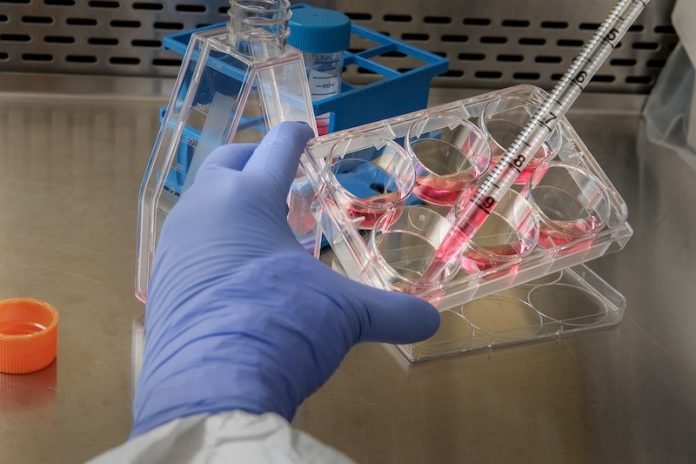
In a new study, researchers found how pancreatic cancer cells turn nearby connective tissue cells into co-conspirators in their deadly growth.
The findings also suggest a new way against pancreatic cancer by identifying critical components of metabolic cross-talk between cells that might be attacked with new therapies, starving the cancer cells of vital nutrients.
The research was conducted by a team at the University of Michigan and elsewhere.
Pancreatic cancer has been particularly resistant to even the best modern treatments — the five-year survival rate stands at just 10%.
The research examined the complex interactions between cancer cells and structural, connective-tissue cells — also known as stromal cells — within the most common type of pancreatic cancer tumors, pancreatic ductal adenocarcinomas.
In these tumors, about 90% of the cells are actually a type of stromal cell called cancer-associated fibroblasts.
These cells help build a fibrous, protective structure, or extracellular matrix, around the tumor and are one of the things that make pancreatic cancer particularly difficult to treat.
The study finds that cancer-associated stroma cells reverse this process during times of nutrient stress, and start cannibalizing the extracellular matrix proteins available in the tumor microenvironment.
The team says most cancer treatments directly target cancer cells. But so far, that approach hasn’t been particularly effective in pancreatic cancer.
So it’s exciting to think about developing a new strategy to augment standard therapies — attacking the growth of the cancer cells by targeting their interactions with these other stromal cells.
The team also found that gabapentin, a common, well-known drug for treating nerve pain, could inhibit BCAT1, the critical enzyme in the fibroblasts, and help starve the cancer cells.
This means the path to translating this new knowledge for use in the clinic is much shorter than if we were starting with a new, unproven compound.
One author of the study is Deepak Nagrath, Ph.D., an associate professor of biomedical engineering.
The study is published in Nature Metabolism.
Copyright © 2020 Knowridge Science Report. All rights reserved.



